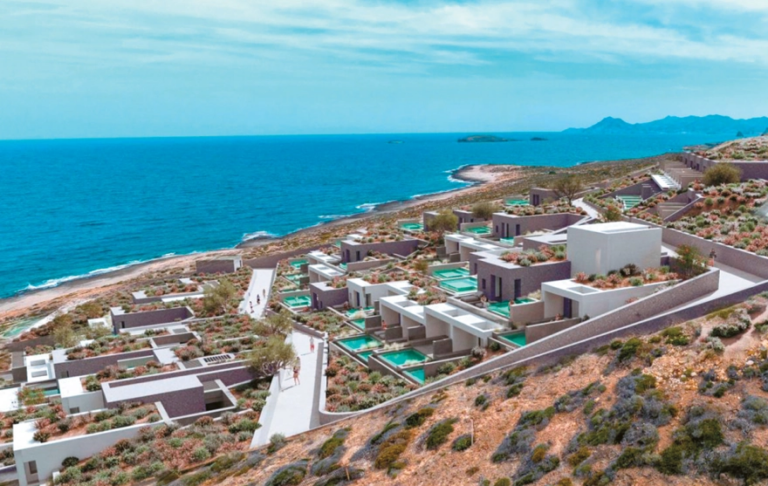Greece’s construction sector is facing a deep freeze as multiple regulatory and legal uncertainties cast a shadow over urban planning. A recent ruling by the Council of State on the New Building Code (NOK), the long-standing lack of clear rules for off-plan construction, and ongoing discussions on tourism zoning have created a perfect storm of delays. Meanwhile, the government is set to unveil a new spatial plan for renewable energy (RES), which could introduce provisions for more sustainable development, particularly on Greece’s islands.

A Crisis in Construction
The construction deadlock has been ongoing for months, with no resolution in sight until the Ministry of Environment and Energy (YPEN) clarifies the legal status of permits issued under the incentives of the NOK. The decision is expected in the coming days, but in the meantime, the industry remains in limbo.
The issue is compounded by years of government inaction in enforcing zoning laws, leading to rampant illegal construction—particularly on islands such as Santorini, Mykonos, and Milos. In some cases, luxury resorts, private roads, and residential complexes have been built in protected areas without permits. Even projects with legal permits, such as those in Sarakiniko, Milos, have raised concerns due to weak enforcement of environmental protections.

Experts warn that the absence of clear urban planning policies is not just an economic problem but also a social and environmental one. The unregulated expansion of tourism-related infrastructure has already put immense pressure on Greece’s natural and urban landscapes, while investors face mounting uncertainty due to the lack of a stable regulatory framework.
The Tourism Planning Deadlock
A new tourism zoning framework has been in the works since 2017, but delays have plagued the process. The initial special zoning plan was published in 2009, modified in 2013, and later annulled by the Council of State. Since then, tourism development has proceeded under a patchwork of regional plans and temporary regulations.

Public consultation on the latest version of the plan concluded in September 2024, yet it remains stalled—partly due to delays in a parallel framework for renewable energy projects. Officials say both plans must align on key policies, particularly concerning offshore wind farms, which have sparked local opposition due to environmental concerns.
Critics argue that the current tourism zoning approach favors large-scale investments over sustainable development. While it claims to promote organized development, in reality, it allows unchecked growth of major tourism projects while failing to curb unregulated off-plan construction.
Environmental organizations warn that the framework does little to address overdevelopment in already saturated destinations. Instead of setting clear limits, it defers critical decisions to future “carrying capacity studies” without providing concrete guidelines.

Renewable Energy: A Softer Approach for the Islands
In contrast, the government appears more decisive on renewable energy zoning. The new RES spatial plan, set to be released for public consultation this month, aims to introduce stricter controls on solar and wind projects in sensitive areas.
Key provisions include:
- Restrictions on solar farms in high-yield agricultural land
- A revised approach to wind farm placement, considering local environmental and tourism concerns
- Prepaid community benefits to local municipalities to make projects more acceptable
The Ministry of Environment and Energy is also considering offshore wind farms, a hot-button issue that has divided communities. While renewable energy is crucial for Greece’s green transition, officials acknowledge the need to balance development with local interests.
The Future of Off-Plan Construction
Meanwhile, the debate over off-plan construction continues, with engineers and urban planners calling for urgent action. Current inconsistencies mean that some regional offices issue permits for off-plan projects while others refuse to do so, leading to legal uncertainty.
The government has proposed an interim regulation to address the issue until a comprehensive zoning framework is completed. The new rule would allow off-plan construction only if a plot has direct access to a public road, aligning with recent Council of State rulings.

While these measures may provide temporary relief, experts argue that Greece needs a long-term vision for urban planning. Without it, construction activity will remain stalled, investments will be deterred, and the country’s landscapes will continue to suffer from unregulated development.
Ask me anything
Explore related questions





